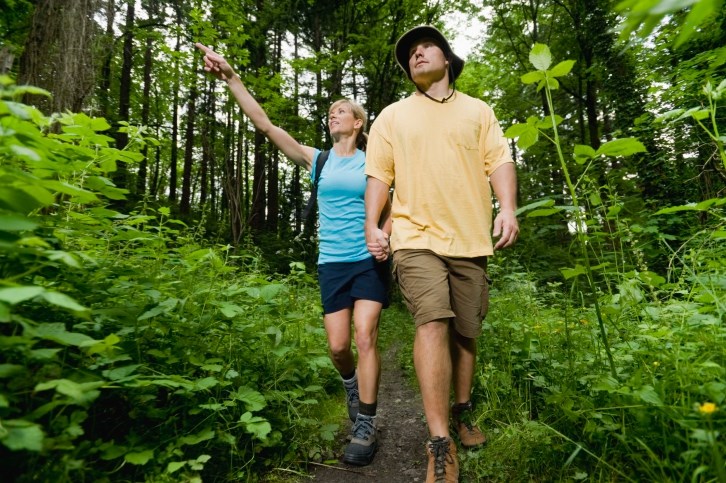Coquitlam Search and Rescue members pulled two men off a cliff ledge this week and are confident it won't be their last rescue this summer as more people seek cool forested trails on Burke and Eagle mountains to escape what is expected to be a warm, dry season.
The proximity of popular wilderness areas near suburban Coquitlam, Port Coquitlam and Port Moody could be the reason Coquitlam SAR finds itself plucking unprepared or injured hikers from trails year round.
In fact, rarely a month goes by without a rescue, according to six years of Coquitlam SAR stats. Still, July, August and September will see the most rescues, based on previous trends, with most taking place on the Diez Vistas trail and the Swan Falls/Halvor Lunden Loop, both popular hiking trails.
Last year, for example, 13 people were rescued in the summer and early fall, compared to 10 in 2013, with a total of 33 rescues in 2014, compared to 39 in 2013.
"Nightfall, combined with an ankle injury, is a common reason for a rescue," said Michael Coyle, Coquitlam SAR spokesperson, who said people could avoid misadventure if they were better prepared.
Often, people intend on going for a short walk but they misjudge the time their journey will take. Earlier this spring, for example, SAR volunteers were called out to rescue a young man and women whose outing took longer than they expected and they called for help because it was cold and they weren't prepared for an overnight stay.
In another example, a 67-year-old man was dropped off by his family at the Port Coquitlam and District Hunting and Fishing Club at the base of Burke Mountain at 3 p.m. and didn't return home. It turns out he was using his smart phone's GPS, which was outdated, and with so many changes in the area, he got confused and lost. Coquitlam SAR was activated at 3 a.m. and searched the trails based on information from the public and at 7 a.m.the man was finally spotted walking along Victoria Drive near Mars Avenue and was reunited with his family.
"The majority don't have a clue, they certainly don't have a map," Coyle said, noting it's likely most people get home safely because of a combination of luck and common sense.
Still, he would rather hikers took a little more time to prepare, just to be safe.
The local organization is selling a map with local hiking information and tips. You can buy it at Canadian Tire in Coquitlam or online.
Here's Coquitlam SAR's list of 10 Essentials
• flashlight and spare batteries;
• extra food and water to prevent dehydration;
• extra clothing — enough for a night outside, what ever the weather;
• navigational aids — always carry a paper map and a compass; GPS units, mobile phones with apps should be supplemental;
• emergency shelter — a light waterproof shelter, also called a bivy sack, a group shelter or even a large garbage bag can help protect;
• signalling devices: cellphone reception can be patchy; always carry a whistle to call for help; emergency beacons, two-way radios, satellite phones, flares, cellphones and mirrors can be used but remember that technology can fail;
• first aid kit;
• pocket knife;
• fire starter — could include flint/tinder, lighter, waterproof matches;
• sun protection.



